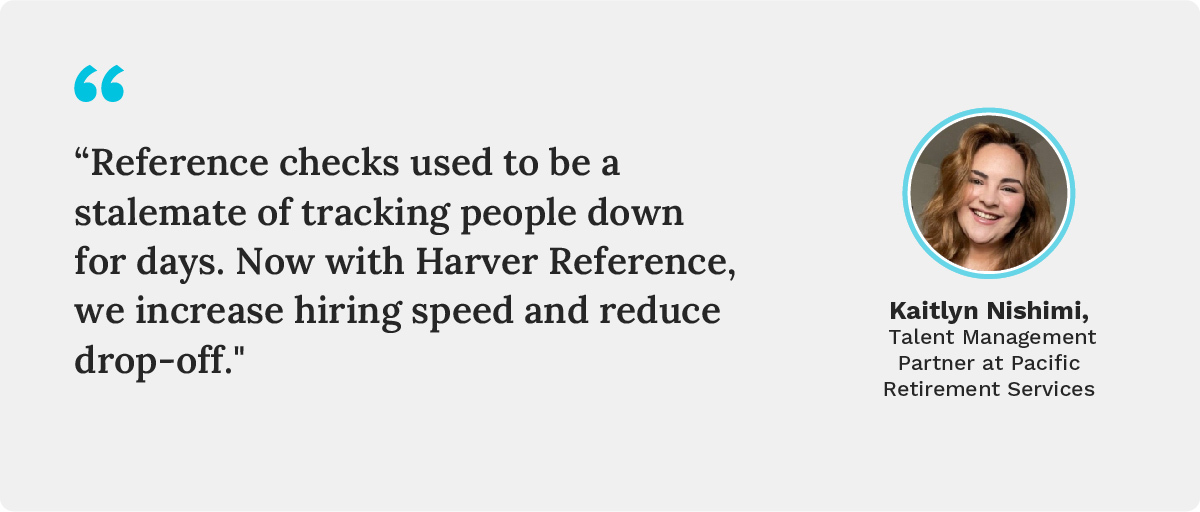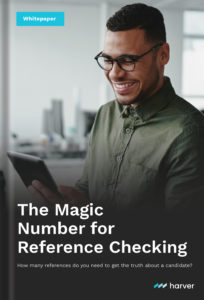Need to hire nurses, caregivers, and other volume roles for healthcare settings? You’ll need to overcome external factors like the 2024 US nurse shortage, with employment projected to grow nearly 10% by 2030 and existing talent retiring faster than replacement rates.
To help you, we’re chatting with Kaitlyn Nishimi at Pacific Retirement Services. As Talent Management Partner, she’s sharing how PRS has adapted to hiring the licensed nurses and caregivers who make up the majority of PRS’s 3,500 employees across 14 communities in 7 states.
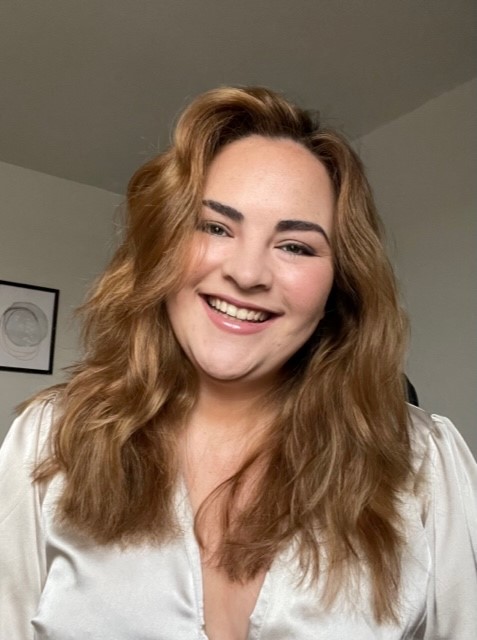
Talent Management Partner, Pacific Retirement Services
Great to see you, Kaitlyn! Tell us a bit about your HR journey so far.
Thanks! I’m a Talent Management Partner at Pacific Retirement Services (PRS), a senior living management company. We have 14 life plan communities across the western US.
In my role at PRS, I crossover between recruiting and HR, managing programs and systems. Some of my focuses are job descriptions, references, ATS, and big job boards like Indeed. I originally started as a recruiter, hiring 250 people in 3 months as we set up a new building in Arizona.
250 hires in a few months. No wonder you transitioned into more of a systems role.
(laughing) It takes a lot of caring people to maintain vibrant communities for our residents!
In 2023, I transitioned more to the systems side. These days, I get to flex my people skills and my systems-oriented brain. Right now, in addition to managing references, I’m standing up our succession planning and formalized L&D process.
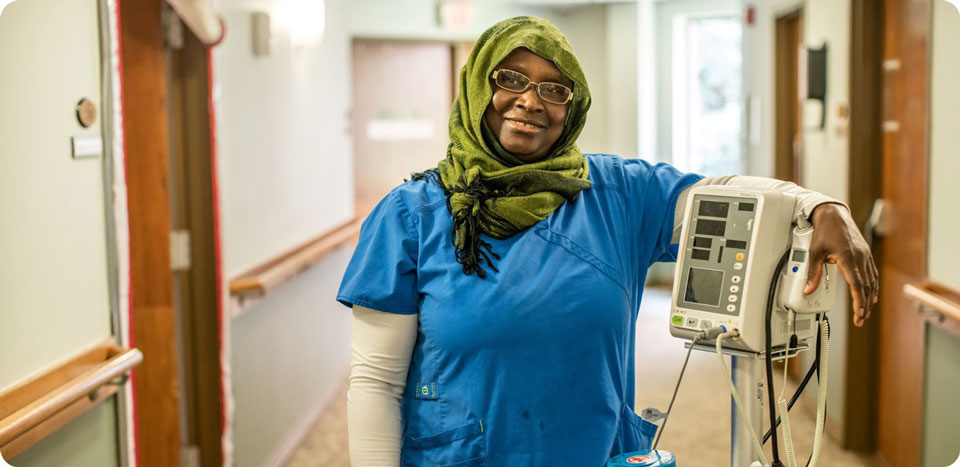
Exciting stuff. How many employees are we talking about at PRS?
We have about 3,500 employees. 80% are high volume roles, like nursing, dining programs, and facility operations. The rest is corporate office roles, like centralized recruiting, system administration, and accounting.
What’s important to assess when hiring at scale like that with a hospitality and healthcare focus?
For any hospitality or healthcare hiring, it’s important that employees are a cultural fit, in addition to being a good match based on duties. On the healthcare side like with nurses, we need caring people we can trust with our residents. Related: Nursing interview questions
Of course, we need to be very mindful of time-to-hire considering we’re 80% high-volume. Especially with fierce competition for talent in general and ongoing nursing shortages around the country.
The Magic Number for Reference Checking
How has the nursing shortage in the US impacted PRS?
Healthcare has always been the bulk of our hiring. Before 2020, about half our hiring was for caregivers to up to the admin level, like Director of Nursing.
The COVID pandemic accelerated an already existing trend where retirement was outpacing new nurses. Senior living everywhere saw a mass exodus of healthcare staff during the pandemic. It definitely hit senior living hard, especially having to compete against hospitals with higher wages and better benefits. Related: 5 ways to stand out in healthcare recruiting
These days, our healthcare hiring is closer to two-thirds of total hiring, though it has been stabilizing.
Like what you see?
Don’t miss out. Subscribe to our quarterly digest to get the latest TA and TM resources delivered right to your inbox.
Have you found solutions to help with the nursing and other labor shortages?
We don’t treat healthcare like a high volume play. Half our 8-person recruiting team focuses on certified nursing assistants (CNAs), nurses, etc. Compare that to dining, where we only have 1 recruiter focused on that.
This “healthcare but not high volume” strategy allows us to take a more customer service approach to recruiting. At PRS, we’ve seen it work well. For example, with licensed nurses who tend to do more due diligence compared to, say, dishwashers.
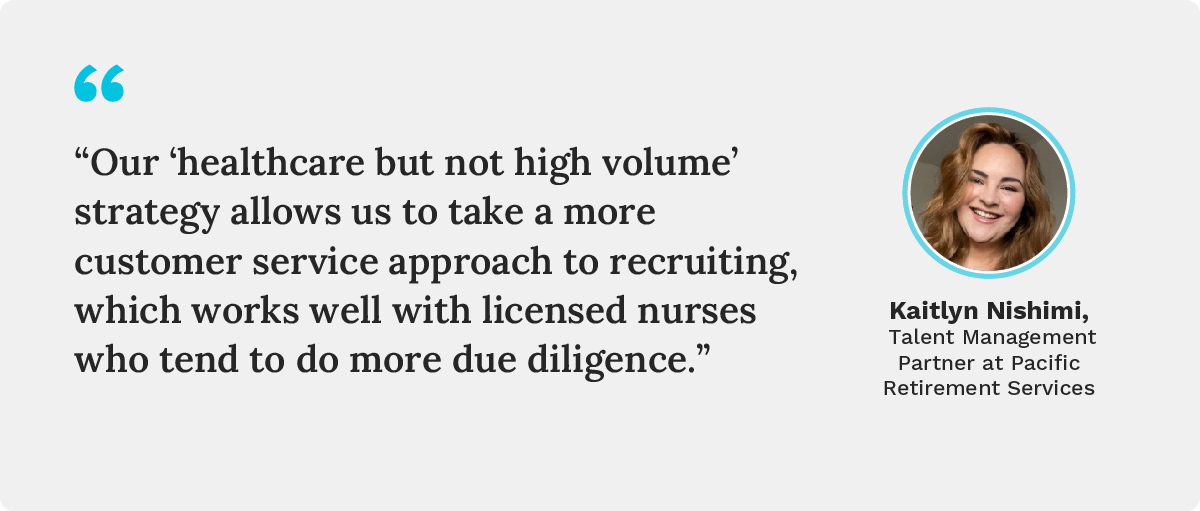
Great agility there! Earlier, you also mentioned speeding up time-to-hire. How so?
For nursing and other fast-moving roles, you don’t have the luxury of waiting to hire. References are an important part of how PRS operates. Yet when we used a manual method, I remember calling references and hoping they answered, then having to go back to candidates for alternates.
I knew we needed to “get with the times.” Since we switched to Harver Reference, cutting out back and forth helps us move as fast as our in-demand candidates. Plus, we also get input regarding candidate personality and their ability to be patient and caring with our residents. Related: Sample reference check questions
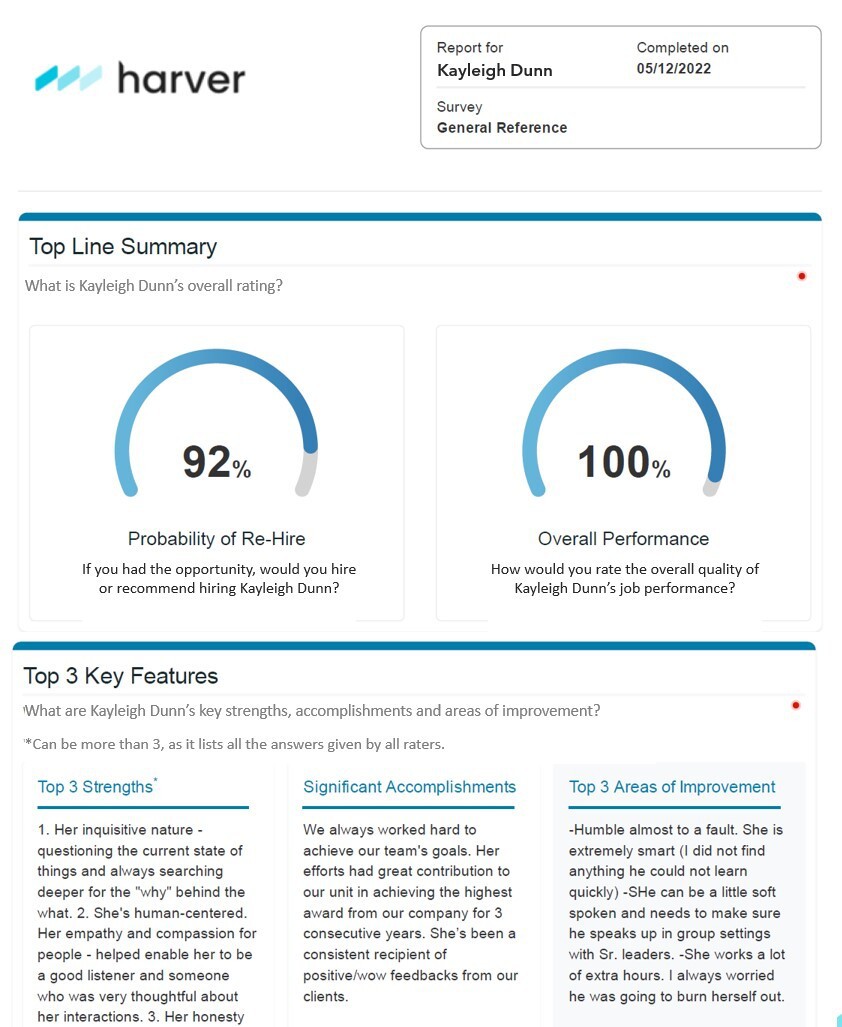
What advice would you share with other talent professionals considering automated reference checking?
First, I recommend adapting to challenging times by restructuring recruiting roles like PRS did. Having specific recruiters specialize in nurses and licensed caregivers has helped a lot.
Second, automating reference checking. Reference checks used to be a stalemate of tracking people down for days. Now with Harver Reference, we increase hiring speed and reduce drop-off.
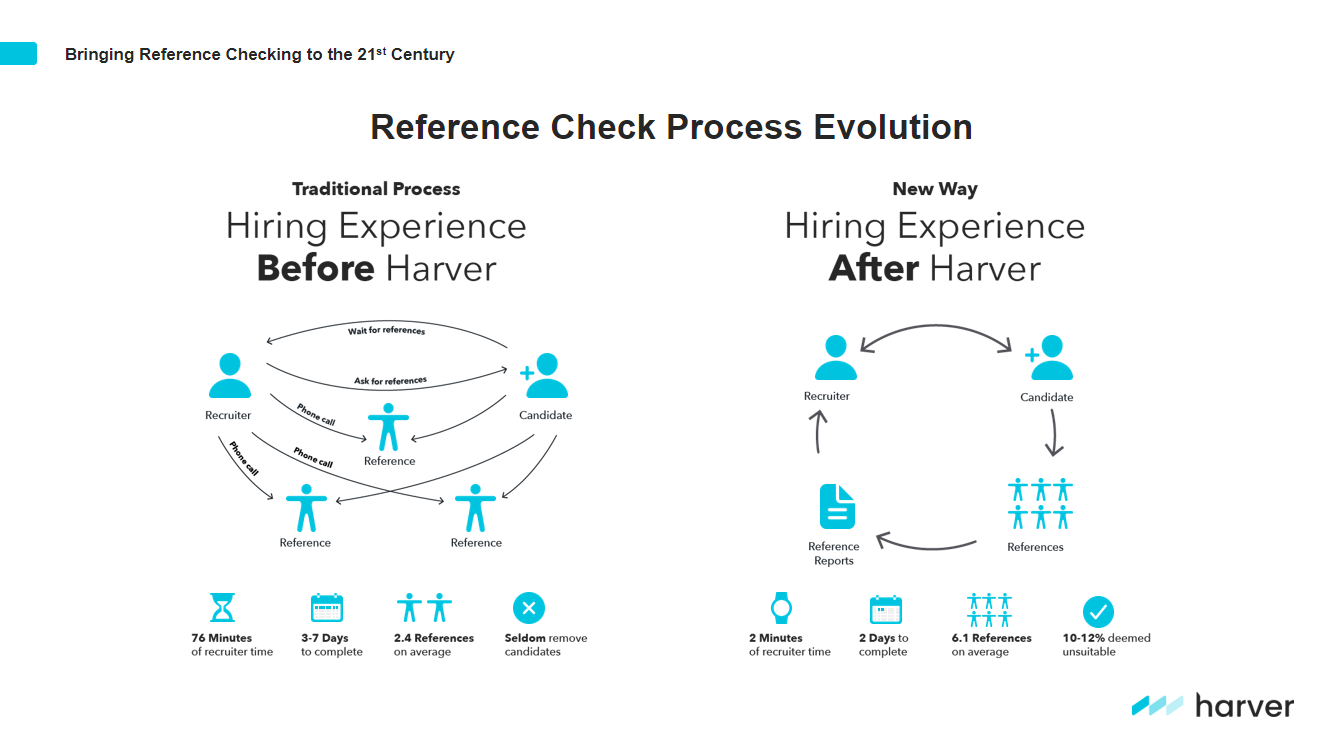
And my third tip for anyone considering automated reference checking: Use reference data to help inform coaching and development. Successful healthcare and caregiving requires a well-rounded view of candidates from peers and supervisors.
